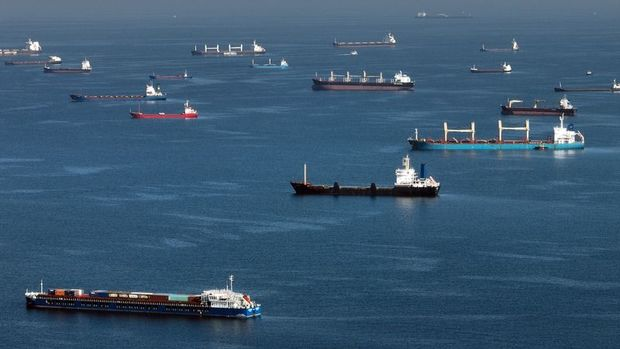UN calls for effective control of grain corridor
The United Nations (UN) drew attention to the increase in the number of grain ships waiting in Turkish waters and called for effective implementation of the grain corridor agreement. The United Nations (UN) drew attention to the fact that the grain corridor agreement, to which Turkey is also a party, is not working as effectively as envisaged, but did not place the responsibility for the increase in the number of ships waiting for approval to pass through Turkish waters on the parties to the agreement. The grain corridor agreement, signed with the initiative of Turkey and the UN, allowed Ukraine to resume grain exports that had been halted due to the Russian invasion, contributing to the decline in food prices. Within the scope of the agreement signed between Russia, Ukraine, Turkey and the UN in July, ships traveling to and from Ukraine are being inspected in Turkey. The parties need to work together on inspecting the ships and approving their journeys. "Work together to reduce the backlog of ships" According to Reuters, the UN made a statement yesterday, saying, "The United Nations calls on all parties to work together to reduce the backlog of ships and eliminate inefficiencies in implementation." Last week, US Ambassador to the UN Linda Thomas-Greenfield accused Russia of “deliberately slowing down inspections” and said that under the agreement, 5 million tonnes of agricultural products were supposed to be transported per month. UN spokesman Farhan Haq said: “We are working to increase the number of inspections. We are working to make them faster and more comprehensive... All of this needs to be done with the cooperation of the parties to the agreement. We are doing everything we can to speed it up.” 1.2 million tonnes transported in two weeks Noting that an average of 5.3 ships were inspected each day in January, the UN noted that ships waited an average of 21 days to transit. The UN also noted that while a slight increase of 3.7 million tonnes of product passed through the straits in December, the amount that passed through in the first two weeks of this month remained at 1.2 million tonnes. The grain corridor agreement also includes a condition for facilitating Russian exports of agricultural products and fertiliser through a Ukrainian port. Negotiations are ongoing to restart exports of ammonia, a key raw material for fertiliser, which was suspended during the war.


